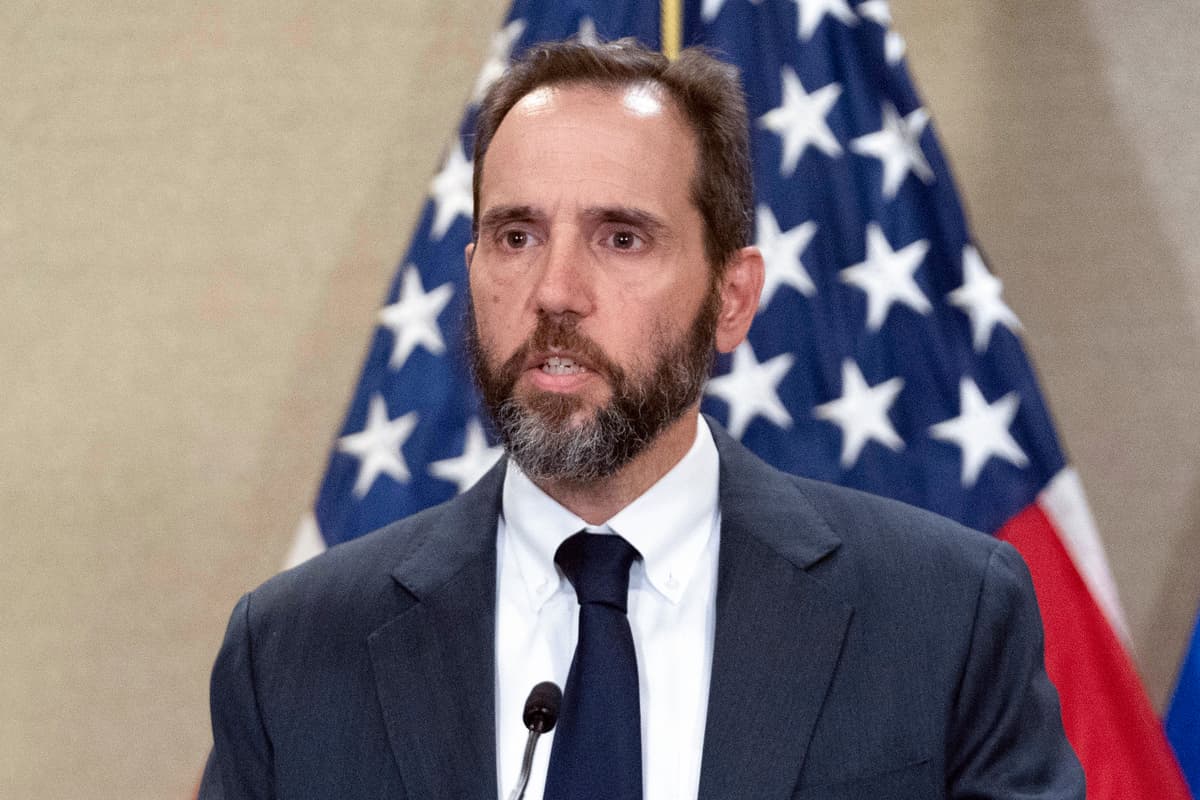Why Is Jack Smith in Such a Rush To Try Trump?
The Sixth Amendment grants the right to enjoy a speedy trial to only the accused. So it starts to look as if the special prosecutor has a motive he dasn’t mention.

Why is Special Counsel Jack Smith in such an all-fired rush to bring President Trump to trial? Our A.R. Hoffman has been covering this question. It’s a bit of a mystery because in the Constitution the right to enjoy a “speedy” trial is granted to only the defendant. For these prosecutors to be in such a hurry to try Mr. Trump there’s only one simple explanation — the desire to convict President Trump before the election and block him from a second term.
In other words, it’s politics. Pure, old fashioned, politics. Since when, though, is playing election politics a grant of power to the Justice Department? This point has been well-marked not only in our own pages but in an important editorial issued Friday by the Wall Street Journal. It runs under the headline “Jack Smith and the Supreme Court” and accuses the special counsel of trying to drag the Justices into his “political timetable.”
We don’t mind saying that this is just shocking, all the more so for — as Mr. Hoffman’s reporting in the past several weeks makes clear — the blitheness on the part of the prosecutors. In announcing the indictments Mr. Smith handed up against Mr. Trump, the special prosecutor carried on, in seeming good faith, about the importance of the presumption of innocence. If the presumption is of innocence, why the rush?
It’s increasingly clear that President Biden — in whom all of the executive power, including prosecuting federal crimes, is vested — is afraid that Mr. Trump might win the election. He looks to be betting that the vote will be decided in the courtroom. More troubling, though, is that Mr. Smith is making the same calculation. There appears to be little other reason for his haste than the political calculus of which Mr. Smith is meant to be ignorant.
Mr. Smith’s motions and maneuvers appear aimed at preserving his March 4 trial date, which falls the day before Super Tuesday. Why, though, is that sacrosanct? Why must judges bestir themselves to meet his deadline especially when the defendant, Mr. Trump, opposes it? If Mr. Smith worries that the voters could return Mr. Trump to the White House while his cases are still unfolding, well then that is, as Mr. Trump sees it, itself election interference.
Ditto Fani Willis, who is a prosecutor in a rush. The Fulton County district attorney is piping up that she’s prepares to pinch hit for Mr. Smith should his January 6 or Mar-a-Lago cases encounter delays. Ms. Willis tells the Atlanta-Journal Constitution that her team is “ready” should a spot on the calendar open up. She derides as “silly” the notion that such a prosecution should be put on hold until after a potential second term in the White House.
What’s so silly about that? The Constitution’s Supremacy Clause is calculated to curb state encroachment on federal laws and treaties. There is at least a possibility that it could again be Mr. Trump’s, and no one else’s, constitutional duty to take care that the laws be faithfully executed. How would he do that from a jail in Georgia? The Wall Street Journal reckons that there are“important issues at stake for the law and presidential power.”
Mr. Smith writes to the high court that “vindicating that public interest in this case requires immediate resolution of the immunity question to permit the trial to occur on an appropriate timetable.” Whose public, though, and what interest? Mr. Smith does not elaborate, beyond noting that a decision in the normal course “may not result in a final decision for many months.” Unspoken is the political deadline — November 5, 2024.

